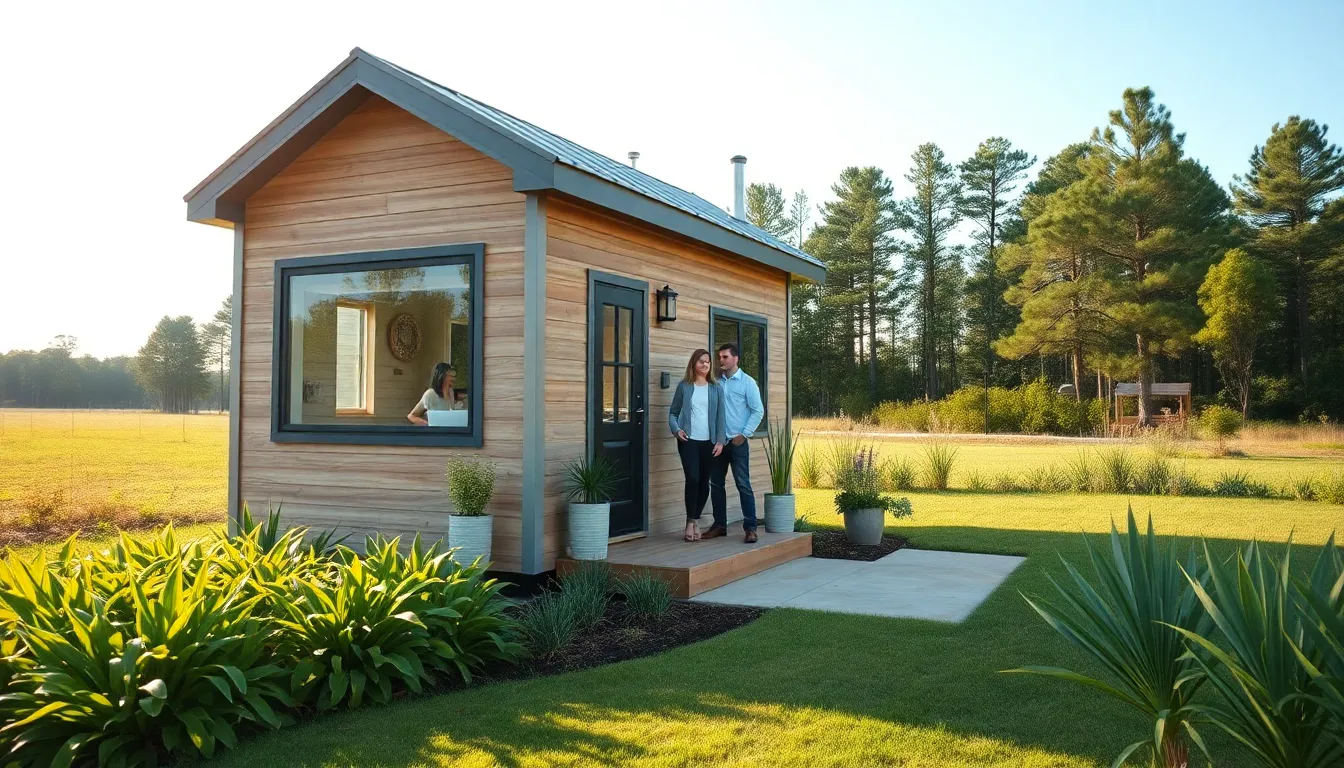Retirement might conjure images of sipping piña coladas on a sunny beach, but what if you could leverage that beloved nest egg sitting in your living room before you even pack the sunscreen? Using home equity for retirement income is like finding a secret door to supplemental cash flow. You watch your home value rise over the years, and now it might be time to unleash that potential. Forget the stereotype of selling your home or downsizing. With the right strategy, you can enjoy your retirement while still living in the home you love. So, grab your reading glasses (and perhaps that aforementioned piña colada), because we’re diving into the world of home equity.
Table of Contents
ToggleUnderstanding Home Equity

What Is Home Equity?
Home equity refers to the portion of your home that you actually own. Imagine your home as a pie. If you bought it for $300,000 and you’ve paid off $100,000 in your mortgage, congratulations. You own about one-third of that pie, making your home equity $100,000. Essentially, if you were to sell your home today, this is the amount you would pocket after settling your mortgage.
How Is Home Equity Calculated?
Calculating home equity is straightforward. You start with the current market value of your home and subtract any outstanding mortgage balance. For instance, if your home is currently valued at $400,000 and you owe $250,000 on your mortgage, you would calculate your home equity like this:
[ 400,000 – 250,000 = 150,000 ]
So, your home equity stands at $150,000. This number often fluctuates with market trends, loan repayments, and renovations, so keep an eye on it.
Benefits Of Using Home Equity In Retirement
Supplementing Retirement Income
Using home equity can serve as a powerful tool in enhancing your retirement income. Whether through a home equity loan, a line of credit, or even selling your home, you can tap into these funds to cover expenses, travel, or even boost your savings. Some retirees have discovered that utilizing home equity allows them to maintain their lifestyle while also pursuing new adventures, all without the stress of depleting savings or living on a fixed income.
Flexibility And Access To Funds
The beauty of using home equity is its flexibility. Unlike fixed retirement accounts, you have immediate access to cash as you need it. A home equity line of credit (HELOC), for instance, acts like a credit card, allowing you to borrow what you need as expenses arise, but only when you need it. This adaptability can make cash flow management during retirement feel less daunting.
Tax Implications Of Home Equity Withdrawal
Home Equity Loans vs. HELOCs
When it comes to tapping into home equity, the choice usually boils down to home equity loans or HELOCs. A home equity loan provides a lump sum with a fixed interest rate, while a HELOC offers a revolving line of credit with variable interest rates. From a tax perspective, the interest you pay on both types may be tax-deductible, but it’s crucial to consult a tax professional for advice tailored to your situation.
Using Reverse Mortgages
Reverse mortgages enable homeowners aged 62 and older to convert part of their home equity into cash. This product allows them to live in their home while receiving funds, which don’t need to be repaid until they move out or pass away. But, it’s essential to thoroughly understand the terms and potential implications, especially about estate planning.
Risks And Considerations
Impact On Estate Planning
Using home equity for retirement income may impact your estate planning. If funds are drawn from the equity you were planning to pass down to heirs, you may want to consider how that affects their inheritance. Transparency is essential in these conversations to avoid misunderstandings later.
Market Conditions And Home Values
Home equity is not immune to fluctuations in real estate markets. If home values decline, your equity may shrink, which can significantly impact your retirement plans. Regularly assess your home’s market value and consider external economic factors that may influence it.
Creating A Sustainable Retirement Strategy
Combining Home Equity With Other Income Streams
A sustainable retirement strategy often encompasses diversifying income sources. Combining home equity with social security, retirement accounts, and pensions can create a more stable financial foundation. This balanced approach helps mitigate risks tied to relying solely on one income stream, making the path to retirement smoother.
Consulting Financial Advisors
Navigating the complexities of home equity and retirement income may warrant professional guidance. Financial advisors can tailor strategies that align with individual needs and goals. They can assist in scenarios where drawing on home equity intersects with other income sources, offering insight into maximizing retirement funds.






